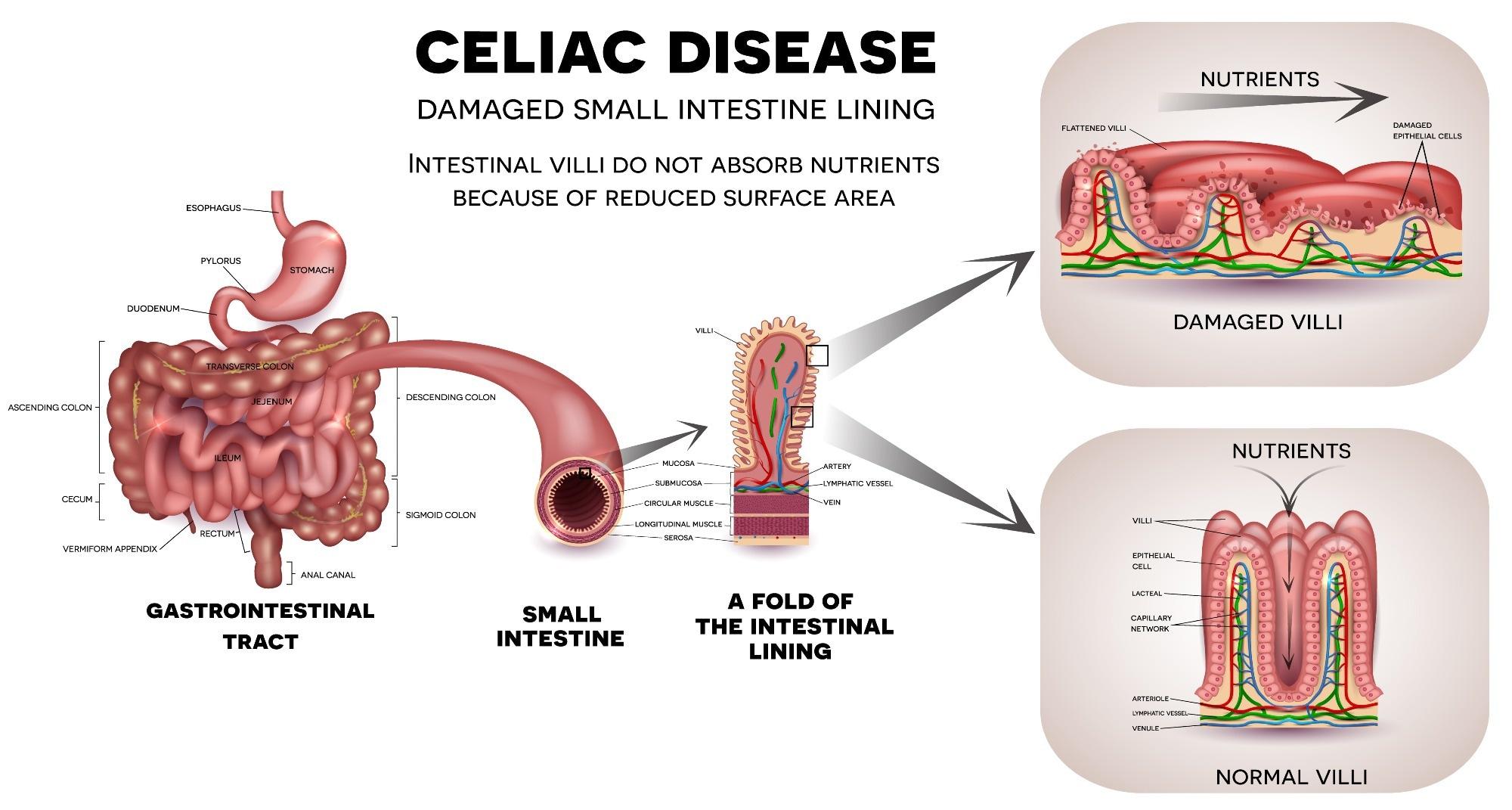In recent years, gluten has become a buzzword, sparking debates and dietary shifts across the globe. Grocery store shelves are now brimming with gluten-free alternatives, and restaurants proudly tout their gluten-free menus. Yet, amid this culinary revolution, a pressing question lingers: is gluten-free eating truly necessary for those who do not suffer from celiac disease? As we delve into the world of wheat and beyond, we aim to unravel the mysteries surrounding gluten, explore its impact on the non-celiac population, and examine whether this dietary trend is a path to wellness or merely a passing fad. Join us as we embark on a journey through the landscape of grains and health, seeking clarity in a sea of dietary confusion.
Understanding the Gluten-Free Trend: Fad or Fact?
For those without celiac disease, navigating the gluten-free landscape can feel like walking a tightrope between health consciousness and dietary confusion. While gluten-free eating is crucial for individuals with celiac disease or gluten sensitivity, many wonder if it’s necessary for everyone else. Let’s delve into the potential benefits and misconceptions surrounding this dietary choice.
- Health Benefits: Some people report improved digestion and increased energy levels after eliminating gluten from their diets, even without a medical diagnosis. This might be attributed to a more mindful approach to eating and the avoidance of highly processed foods.
- Misconceptions: It’s a common belief that gluten-free means healthier, but this isn’t always the case. Many gluten-free products can be high in sugar and fat to compensate for taste and texture, leading to unintended health impacts.
- Personal Choice: Ultimately, whether or not to follow a gluten-free diet is a personal decision that should be informed by one’s health goals and lifestyle preferences.
Before embarking on a gluten-free journey, non-celiac individuals should consider consulting with a healthcare professional to ensure that their dietary choices support their overall well-being.

Exploring the Health Implications of Gluten for the General Population
When considering a gluten-free diet, it’s essential to weigh its implications on the general population. For those without celiac disease or a diagnosed gluten sensitivity, removing gluten from the diet may not necessarily offer health benefits. In fact, the trend of going gluten-free without medical necessity can sometimes lead to unintended nutritional consequences. Gluten-containing grains like wheat, barley, and rye are rich in fiber, vitamins, and minerals that contribute to a balanced diet. Eliminating these grains without proper substitutes might result in deficiencies in these crucial nutrients.
- Fiber: Helps maintain digestive health and can prevent constipation.
- B Vitamins: Important for energy production and brain function.
- Iron: Vital for oxygen transport in the blood.
Additionally, many gluten-free products are often higher in sugar and fat to enhance flavor and texture, potentially leading to other health issues such as weight gain or increased cholesterol levels. For non-celiac individuals, it’s crucial to focus on a diet that is balanced and diverse, rather than strictly gluten-free, unless medically advised. Instead of eliminating gluten, consider a diet rich in whole grains, fruits, vegetables, and lean proteins to support overall health and well-being.

The Science Behind Gluten Sensitivity in Non-Celiac Individuals
Recent studies have unveiled fascinating insights into why some non-celiac individuals experience discomfort when consuming gluten. This phenomenon, often referred to as Non-Celiac Gluten Sensitivity (NCGS), is not fully understood, but emerging research suggests a complex interplay of factors. Unlike celiac disease, where the immune system aggressively attacks the small intestine in response to gluten, NCGS involves a different set of reactions. Scientists propose that this sensitivity might be linked to a specific immune response or could be related to other components in wheat, such as FODMAPs, which are known to cause digestive issues.
- Immune System Response: Some individuals may have a mild immune response to gluten that does not involve the autoantibodies characteristic of celiac disease.
- Gut Microbiome: Alterations in the gut microbiota might influence how gluten is processed, potentially leading to sensitivity.
- FODMAPs: These fermentable oligosaccharides, disaccharides, monosaccharides, and polyols in wheat can trigger symptoms similar to gluten sensitivity.
Understanding these factors is crucial for developing effective dietary guidelines and treatment options for those who experience gluten-related symptoms without celiac disease. As research continues, it becomes increasingly important to distinguish between genuine gluten sensitivity and other dietary intolerances.

Making Informed Dietary Choices: When to Consider Going Gluten-Free
While a gluten-free diet is crucial for those diagnosed with celiac disease, the necessity for others remains a topic of debate. Understanding when to adopt such dietary changes involves recognizing specific health signals and evaluating personal lifestyle goals. For non-celiac individuals, going gluten-free might be considered in certain circumstances:
- Gluten Sensitivity: Some people experience symptoms like bloating, fatigue, or headaches when consuming gluten, despite not having celiac disease. These individuals might benefit from reducing or eliminating gluten.
- Digestive Health Concerns: Those dealing with irritable bowel syndrome (IBS) or other digestive issues may find that a gluten-free diet alleviates some discomfort, although it’s essential to consult with a healthcare provider before making drastic changes.
- Personal Health Goals: For individuals seeking a more mindful approach to their eating habits, experimenting with gluten-free options can lead to discovering new, nutritious foods, although it should not be viewed as a guaranteed method for weight loss.
Ultimately, the decision to go gluten-free should be made based on individual health needs and professional guidance, ensuring that any dietary transition supports overall well-being and nutritional balance.
Closing Remarks
As we close the chapter on the gluten-free conundrum, it’s clear that the journey of understanding our dietary choices is as complex as the grains we debate over. For those without celiac disease or a diagnosed sensitivity, the decision to embrace a gluten-free lifestyle remains a personal tapestry woven with threads of curiosity, health aspirations, and individual experiences. While science continues to unravel the intricate relationship between gluten and our well-being, the narrative is yours to craft. Whether you choose to indulge in the golden crust of a freshly baked loaf or opt for alternatives that suit your palate and peace of mind, remember that informed choices are the cornerstone of a balanced life. As with any culinary adventure, let your journey be guided by knowledge, intuition, and a dash of moderation. After all, in the grand feast of life, variety is the spice that keeps us coming back for more.

